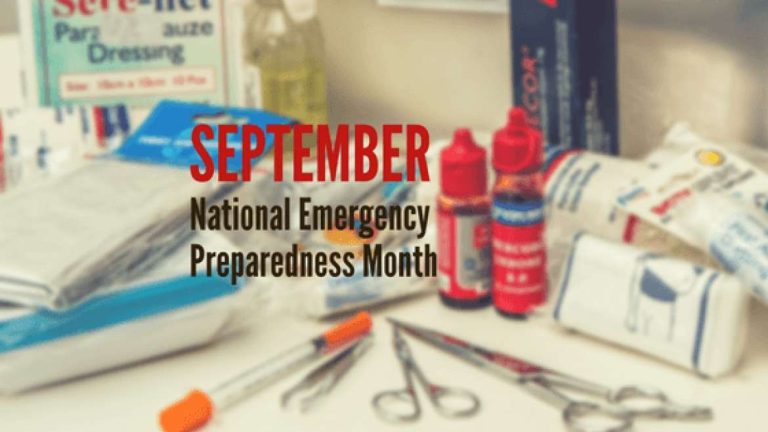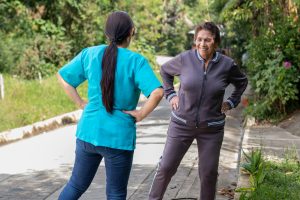Over the past few days, our thoughts and prayers have been with those displaced and affected by Hurricane Harvey, and now Hurricane Irma. A devastating weather event such as this highlights the great importance of emergency preparedness. Of course, many disasters cannot be prevented, but being prepared can improve your chances of surviving such an emergency.
September has become known as National Emergency Preparedness Month, a time when we are encouraged to create plans for evacuation and sheltering, as well as to have necessary supplies in place. This is important for everyone, but for aging people dependent upon assistance, preparedness is even more crucial.
These steps will help you and your aging loved one prepare for an emergency:
- Copy important documents. Ensure that copies of important paperwork such as identification and legal documents are stored in a safe and dry place. Those who are caregivers should have a copy of documents for their dependent loved ones. Identification and prescriptions should be readily accessible in case of evacuation.
- Stock up. It is recommended that each individual have water and nonperishable, easy to prepare food for at least three days. Those on medication should have at least a three-day supply, preferably more. If you live apart from your aging loved one, make sure that they have the supply on hand and can access it. Consider limited dexterity and purchase only easy-to-open supplies.
- Know what disasters are most likely to occur in your area and create a plan for each. Sign up for alerts from agencies that provide alerts. Talk to your loved one about how to get out of the house in a fire, where to shelter during a tornado, etc. Write it down or draw pictures if needed. Practice.
- Plan for making contact. Your loved one should have a list of multiple people to contact in an emergency. Take the initiative to check in with them as soon as possible. Do not count on phones working, and be sure to include an alternate method of contact.
- Talk with other care providers. Talk with your relatives or other care providers about what would happen if they were with your loved one in the event of an emergency. Where would they go? How would they contact you? If your loved one has a service where they can get help by pushing a button, make sure all contact information stays up to date.
For more information on becoming prepared, the Red Cross, Ready.gov, the CDC and FEMA are helpful resources. We wish you a safe and prepared September.






